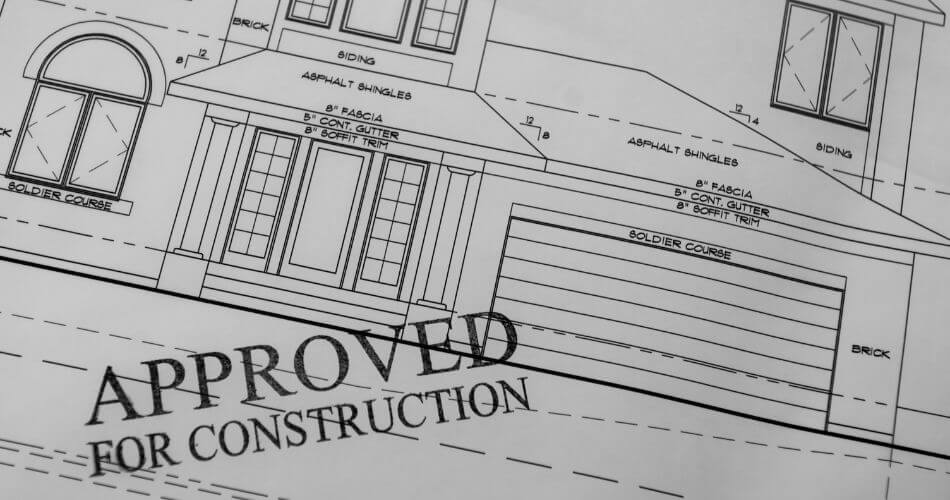Disclosing Building Plans: The Key to Smooth and Transparent Property Transactions
Ensure a Smooth Transaction by Disclosing Approved Building Plans and Building Trust with Buyers

Buying or selling a property can be a thrilling journey, but it’s fraught with potential pitfalls, especially when it comes to ensuring all building plans are approved.
Here, we delve into why disclosing building plans is essential for a smooth transaction and how it can safeguard you from legal headaches down the road.
The Importance of Transparency in Property Transactions

Why You Need to Disclose Building Plans
Imagine you’ve just found your dream home. The price is right, the location is perfect, and everything seems to be in order. But after moving in, you discover that some of the extensions were never approved by the local authorities.
This scenario is more common than you might think, and it highlights the crucial need for transparency in property transactions.
Legal Requirements for Building Plans
In South Africa, the National Building Regulations and Building Standards Act mandates that all building plans, whether for new construction, conversions, or alterations, must be approved by the local authority.
Failure to obtain this approval not only renders the structure illegal but also exposes the homeowner to significant risks, including fines, demolition orders, and hefty repair costs.
The Risks of Non-Compliance – Consequences for Buyers and Sellers
When a buyer unknowingly purchases a property with unapproved structures, they inherit the responsibility for rectifying the situation.
This can include securing the necessary approvals, paying fines, or even demolishing unauthorized structures. For sellers, not disclosing these issues can result in legal battles, financial penalties, and a tarnished reputation.
Real-Life Example: A Costly Mistake
Consider the case of John and Mary, who bought a beautiful home in Cape Town’s Northern Suburbs. A few months after moving in, they received a notice from the municipality about an unauthorized extension.
They had to spend a considerable amount of money to get the plans approved and make the necessary changes, all while dealing with the stress and disruption to their lives.
Steps for Buyers: Ensuring Compliance

Pre-Purchase Due Diligence
Before making an offer on a property, ask the seller for the approved building plans. This step is crucial in avoiding future disputes and ensuring that all structures comply with local regulations.
If the plans are not provided upfront, insist on including a clause in the sale agreement that obligates the seller to produce the approved plans before the transfer of ownership.
Verifying Building Plans
Once you have the plans, verify that they match the existing structures. This verification helps ensure that no unauthorized modifications have been made, which could later result in complications.
Updated “as-built” plans, reflecting the current state of the property, are ideal for this purpose.
Responsibilities of Sellers: Building Trust
Providing Approved Building Plans
As a seller, having all building approvals and plans ready to present to potential buyers is not just about legal compliance; it’s about building trust.
Transparency in disclosing any unauthorized changes upfront can expedite the decision-making process and protect you from legal repercussions.
Avoiding Delays and Legal Issues
Having approved plans on hand can prevent delays in the transfer process, especially if the buyer’s mortgage lender requests these documents. It also protects you from being accused of concealing information or facing legal battles over non-compliant structures.
Including the necessary consents, permissions, and permits in the mandatory disclosure form attached to the sale agreement is essential for legal protection.
The Role of Real Estate Agents

Advising Clients on Building Plans
Real estate agents play a crucial role in this process. They should advise sellers to disclose any unauthorized changes and ensure that buyers are aware of the importance of obtaining approved building plans.
This proactive approach helps in building trust and ensuring a smooth transaction.
Case Study: High Court Decision
A recent High Court case highlighted the importance of clarity in sale agreements regarding who is responsible for obtaining building plan approvals.
In this case, the agreement stated that the sale was subject to the approval of building plans by the municipality but did not specify who was responsible for this task.
The court ultimately held the seller responsible, emphasizing that only landowners can apply for such approvals by default.
This case underscores the necessity of clear contractual terms to avoid disputes and ensure a smooth transaction.
Practical Tips for Buyers and Sellers
For Buyers
Request Plans Early: Ask for building plans before making an offer.
Include Clear Clauses: Ensure the sale agreement clearly states that the seller must provide approved plans.
Verify Compliance: Cross-check the provided plans with existing structures.
For Sellers
Prepare Plans in Advance: Have all building approvals and plans ready for prospective buyers.
Ensure Full Disclosure: Attach necessary consents, permissions, and permits to the mandatory disclosure form.
Clarify Responsibilities: Include clear terms in the sale agreement regarding the provision of building plans.
Ensuring a Smooth Property Transaction

Transparency and compliance with building regulations are crucial for both property buyers and sellers.
By taking proactive steps and ensuring clear terms in the sale agreement, both parties can avoid disputes, legal issues, and costly rectifications. Proper due diligence and preparation lead to a smoother, more secure property transaction.
Ready to make your property transaction seamless? Start by ensuring all building plans are disclosed and approved.
For expert advice and assistance, contact Andre Swart and his team today. Let’s build trust and transparency together.
By following these guidelines, buyers and sellers can ensure a seamless property transaction, free from the complications of unapproved building structures.
Whether you’re buying or selling, remember that transparency is the key to a successful and hassle-free experience.
